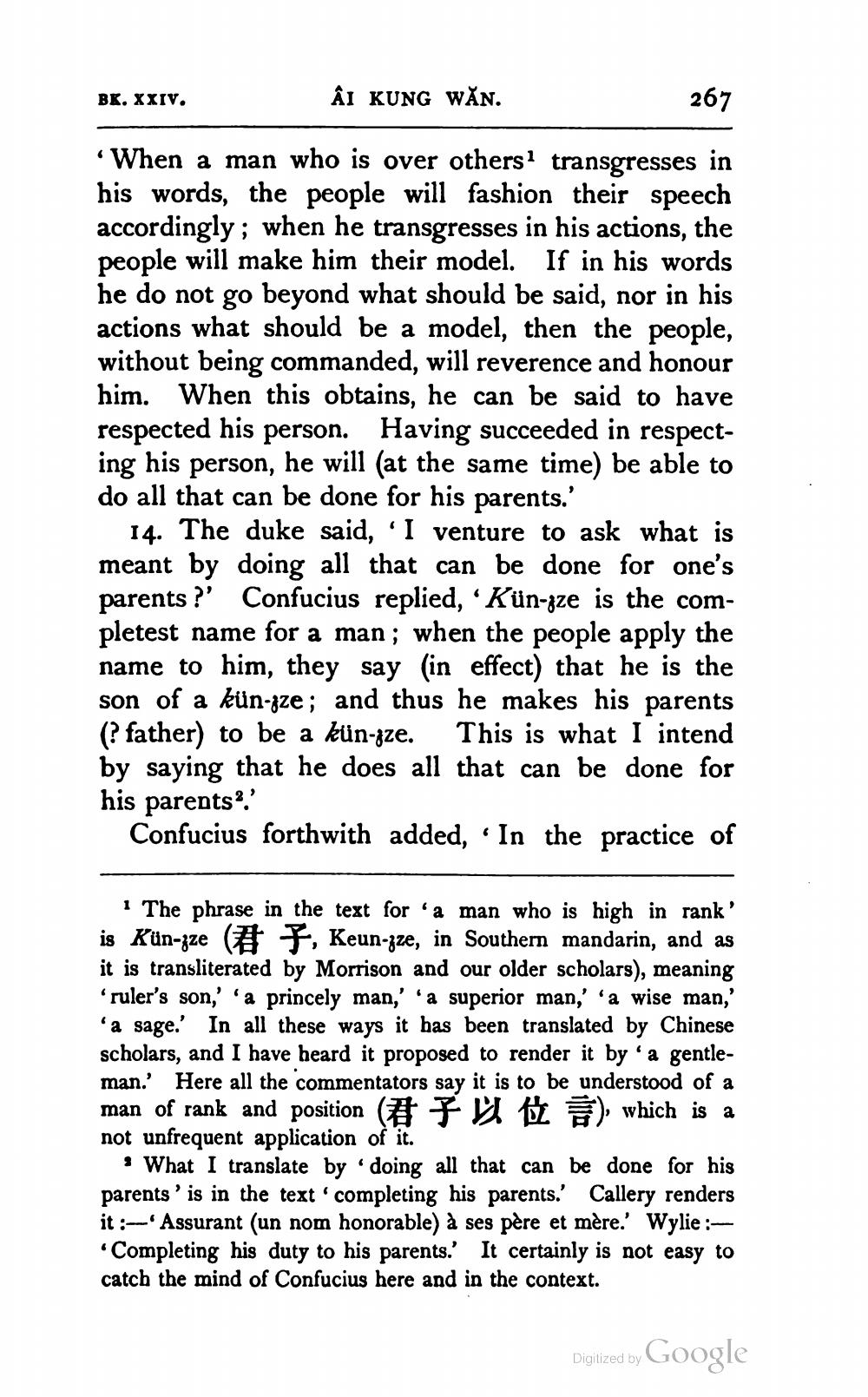________________
ÂI KUNG WAN.
267
'When a man who is over others1 transgresses in his words, the people will fashion their speech accordingly; when he transgresses in his actions, the people will make him their model. If in his words he do not go beyond what should be said, nor in his actions what should be a model, then the people, without being commanded, will reverence and honour him. When this obtains, he can be said to have respected his person. Having succeeded in respecting his person, he will (at the same time) be able to do all that can be done for his parents.'
14. The duke said, 'I venture to ask what is meant by doing all that can be done for one's parents?' Confucius replied, 'Kün-ze is the completest name for a man; when the people apply the name to him, they say (in effect) that he is the son of a kün-¡ze; and thus he makes his parents (? father) to be a kün-zze. This is what I intend by saying that he does all that can be done for his parents'.'
Confucius forthwith added, In the practice of
C
BK. XXIV.
The phrase in the text for a man who is high in rank' is Kün-zze (#, Keun-zze, in Southern mandarin, and as it is transliterated by Morrison and our older scholars), meaning 'ruler's son,' 'a princely man,' 'a superior man,' 'a wise man,' 'a sage.' In all these ways it has been translated by Chinese scholars, and I have heard it proposed to render it by 'a gentleman.' Here all the commentators say it is to be understood of a
man of rank and position (君子以位言), which is a not unfrequent application of it.
་
• What I translate by doing all that can be done for his parents' is in the text completing his parents.' Callery renders it:-'Assurant (un nom honorable) à ses père et mère.' Wylie :'Completing his duty to his parents.' It certainly is not easy to catch the mind of Confucius here and in the context.
Digitized by
Google




